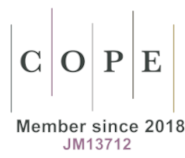Graphic Narratives of Women in War: Identity Construction in the Works of Zeina Abirached, Miriam Katin, and Marjane Satrapi
DOI:
https://doi.org/10.2478/ipcj-2014-0002Słowa kluczowe:
gendered violence, graphic narrative, identity, traumaAbstrakt
By applying terminology from trauma theory and a methodological approach from comics scholarship, this essay discusses three graphic autobiographies of women. These are A Game for Swallows by Zeina Abirached (trans. Edward Gauvin, 2012), We are on our Own by Miriam Katin (2006), and Persepolis by Marjane Satrapi (trans. Anjali Singh, 2004). Two issues are at the centre of the investigation: the strategies by which these works engage in the much-debated issues of representing gendered violence, and the representation of the ways traumatized daughters and their mothers deal with the identity crises caused by war.
Pobrania
Bibliografia
Abirached, Zeina. A Game for Swallows. To Die, To Leave and To Return. Minneapolis: Graphic Universe, 2012.
Zobacz w Google Scholar
Abrams, Kathryn and Irene Kacandes. “Introduction: Witness.” Women’s Studies Quarterly 36.1&2 2008: 13-27.
Zobacz w Google Scholar
Chute, Hillary. “The Texture of Retracing in Marjane Satrapi”s Persepolis.” Women’s Studies Quarterly 36.1&2 2008: 92-110.
Zobacz w Google Scholar
Claudio, Esther. “Marjane Satrapi’s Elaborate Simplicity: Persepolis.” The Comics Grid (March, 2011) 07 Aug 2012 blog.comicsgrid.com/2011/03/marjanesatrapis-elaborate-simplicity-persepolis
Zobacz w Google Scholar
Disch, Lisa and Leslie Morris. “Departures: New Feminist Perspectives on the Holocaust.” Women in German Yearbook 19 2003: 9-19.
Zobacz w Google Scholar
Doherty, Thomas. “Art Spiegelman’s Maus: Graphic Art and the Holocaust.” American Literature 68.1 1996: 69-84.
Zobacz w Google Scholar
Hatfield, Charles. Alternative Comics. An Emerging Literature. Jackson: University Press of Missisipi, 2005.
Zobacz w Google Scholar
Hirsch Marianne. “Marked by Memory: Feminist Reflections on Trauma and Transmission.” Extremities – Trauma, Testimony, Community. Eds. N. K. Miller, J. Tougaw, University of Illinois, 2002. 71-91.
Zobacz w Google Scholar
Hirsch Marianne. “Surviving Images: Holocaust Photographs and the Work of Postmemory.” The Yale Journal of Criticism 14.1 2001: 5–37.
Zobacz w Google Scholar
Hirsch Marianne and Leo Spitzer. “The Witness in the Archive: Holocaust Studies / Memory Studies.” Memory Studies 2.2 2009: 151-170.
Zobacz w Google Scholar
Katin, Miriam. We Are on Our Own. Montreal: Drawn & Quarterly, 2006.
Zobacz w Google Scholar
Liebman Jacobs. “Women, Genocide, and Memory. The Ethics of Feminist Ethnography in Holocaust Research.” Gender and Society 18.2 2004: 223-238.
Zobacz w Google Scholar
McCloud, Scott. Understanding Comics–The Invisible art. New York: Harper Perennial, 1994.
Zobacz w Google Scholar
Pinchevski, Amit. “The Audiovisual Unconscious: Media and Trauma in the Video Archive for Holocaust Testimonies.” Critical Inquiry 39.1 2012: 142-166.
Zobacz w Google Scholar
Satrapi, Marjane. Persepolis. The Story of a Childhood and The Story of a Return. London: Vintage Books, 2003.
Zobacz w Google Scholar
Sontag, Susan. Regarding the Pain of Others. London: Penguin, 2003.
Zobacz w Google Scholar
Spiegelman, Art. Maus I. New York: Pantheon Books, 1986.
Zobacz w Google Scholar
Spiegelman, Art. Maus II. New York: Pantheon Books, 1986.
Zobacz w Google Scholar
Pobrania
Opublikowane
Jak cytować
Numer
Dział
Licencja

Utwór dostępny jest na licencji Creative Commons Uznanie autorstwa – Użycie niekomercyjne – Bez utworów zależnych 4.0 Międzynarodowe.

















